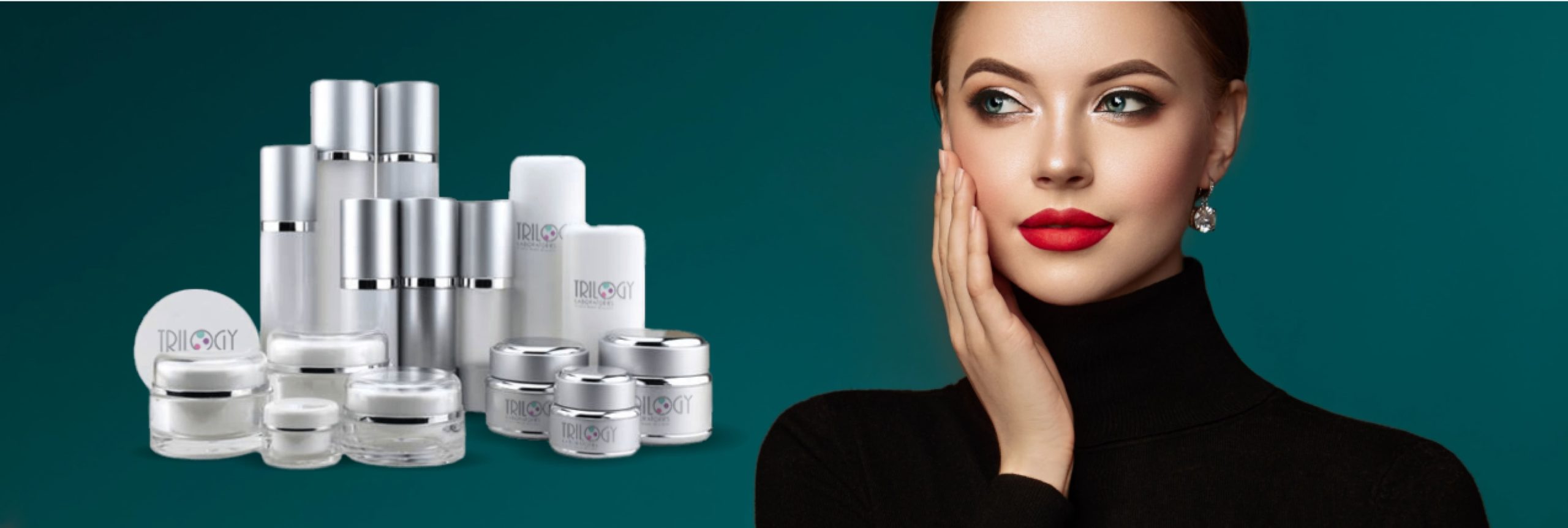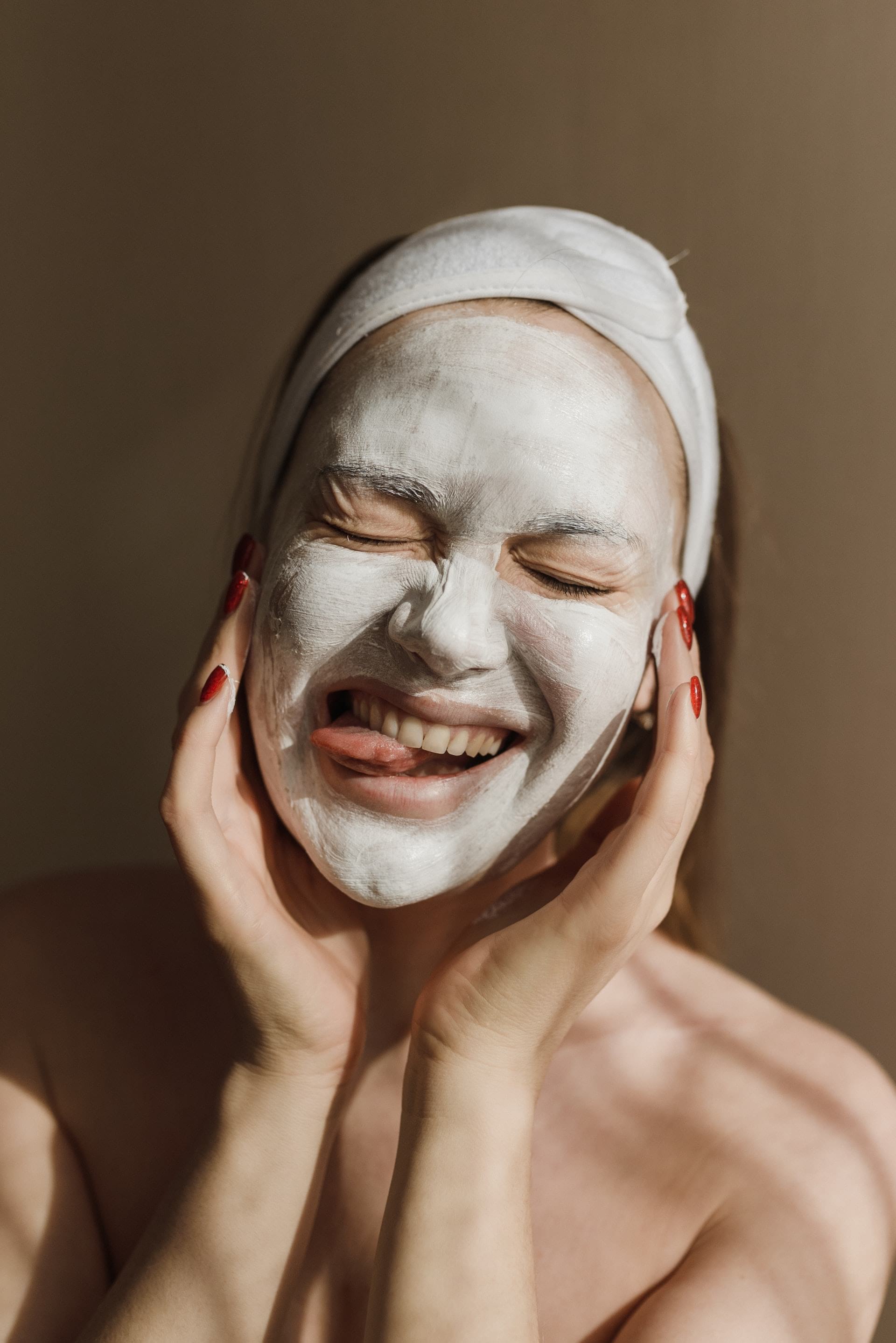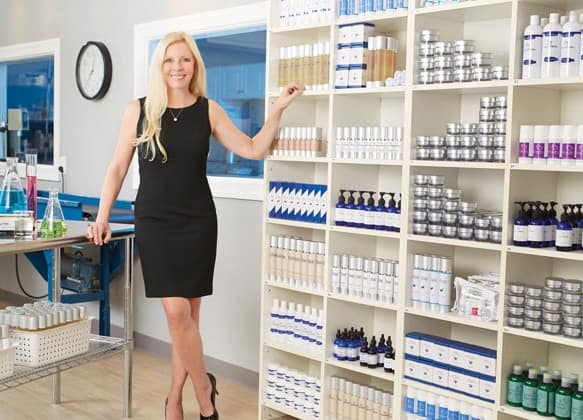As a beauty influencer, you know the importance of skincare—so much so that your audience can trust the tips, techniques, and products you recommend. And now more than ever, skincare brands are engaging in influencer marketing by using the relationships influencers have with viewers to sell moisturizers, exfoliators, masks, and other beauty products.
But if you are passionate about skincare, you could consider launching your own skincare brand.
It’s easier than you might think to build a skincare line, thanks to private label skincare companies. These manufacturers are the secret to success for retailers across the world and play a part in skincare brands of all types. You can take advantage of the lucrative skincare market to finally cement your place in the beauty industry.
Our guide to building a skincare brand will help you get started.
Step 1: Identify Your Target Audience
Any experienced marketer will tell you that identifying your target audience is one of the most important parts of developing a brand. Your customer base will inform all the business decisions you make, so get clarity on who you want to serve as soon as possible.
As a beauty influencer, you have an online following, which is a great place to start when it comes to defining your audience. Think about the age, income level, gender, and skincare needs of your viewers. Different groups of people will appreciate different approaches to skincare and branding.
Step 2: Determine the Products You Want to Offer
There is a wide range of skincare products on the market. Some, like cleansers and serums, are more general, while others like anti-aging products and acne solutions are intended to solve a specific problem for your customers.
You can choose to focus on one product or offer a small line of selections; either way, starting with a vision in mind will help guide your next steps. If you’re just starting out, however, it makes sense to keep your options limited at first. You can perfect your product and then focus on other aspects of your skincare brand.
Step 3: Carve Out Your Niche
What will set your skincare brand apart from the crowd? It’s time to carve out your niche.
Based on the needs of your target audience and the products you want to develop, determine what will make your business special. For example, you might create eco-friendly and vegan products, or you could focus on luxury skincare with extravagant ingredients. Consider researching competing influencer skincare brands to see what they are offering and thinking about what you can create that is different.
The best way to succeed as a skincare brand is to narrow your focus and choose a niche.
Step 4: Create a Business Plan
Every business—even a small skincare line—needs a business plan.
A business plan is a document that details both your company’s goals and how you plan to accomplish those goals. You could include a description of your products, your starting budget, and a mission statement, among other sections.
Follow a template or write a one-page summary of your goals. Regardless of what it looks like, a business plan is necessary if you want to seek outside funding sources.
Step 5: Meet the Legal Requirements
Before you start selling your skincare products, you need to set up your business legally.
Business can range in structure from sole proprietorships or limited liability corporations (LLC) to S corporations or C corporations. Your choice of business legal structure depends on how much capital you have, how quickly you want to set up your business, and how much protection you need from possible lawsuits.
Each state has its own requirements for business licenses and sales tax permits, and you may need other certifications as well. Depending on how you manufacture your products, purchasing professional and product liability insurance may also be a good idea.
Additionally, the Food and Drug Administration (FDA) enforces the Food, Drug, and Cosmetic Act (FD&C Act) to ensure skincare and beauty products are properly labeled as well as safe for consumers to use.
Consider consulting with an attorney to ensure your business meets all legal requirements.
Step 6: Choose a Manufacturing Option
You don’t have to be a chemist to start your own skincare line. In fact, very few skincare brands make their products in-house. Instead, you can enlist the help of a third-party supplier to manufacture your products and then sell them under your brand.
Manufacture the Products In-House
Typically, only large skincare, beauty, and cosmetic companies with lots of capital can afford to manufacture their products in-house. The advantage of this method is that you have complete control over your skincare products, but this control comes at a steep and ongoing expense.
Private Label the Products
Private label skincare is the backbone of the skincare industry. These companies offer a selection of existing products that you can label with your own branding and marketing. Although your products won’t be completely unique, many manufacturers have options for you to add special ingredients and fragrances to batches of product so you can make it your own.
Private labeling your skincare products is usually the cheapest and simplest option—especially for new beauty brands.
Partner with a Custom-Formula Manufacturer
You can also partner with a manufacturer to create a custom formula for your skincare line. This method allows you to build your products from the ground up and develop a one-of-a-kind skincare line. While customizing the formula comes at a higher cost, it may be a viable choice if your brand requires a unique formula.
Step 7: Find a Skincare Manufacturer
Unless you choose to manufacture your skincare line in-house, you’ll need to find a third-party skincare manufacturer to make your products.
It’s important to do your research and carefully vet any supplier you want to work with. Try to find a company that has experience in your niche, is compliant with all FDA health and safety standards, and has a track record of successfully developing skincare products. Read customer reviews and testimonials, too.
The best manufacturers won’t stop at developing your products; they’ll also offer customizable packaging and labeling options to streamline the entire manufacturing process.
You want to work with an established and trustworthy skincare manufacturer. After all, your skincare products can only be as good as the company that makes them.
Step 8: Establish Your Brand
As a beauty influencer, you are an expert in establishing a brand. Carry that experience over to your skincare line, and your beauty brand will be set up for success.
Branding includes all the qualities that people associate with your business, from the name, logo, and tagline to the colors, packaging, and copy. Don’t forget to think about your target customers and niche—every part of your brand should be influenced by your audience.
Step 9: Market and Sell Your Skincare Products
Finally, it’s time to get your skincare products into the hands of your customers. You can sell your products online through your own website or via a large retailer like Amazon. Alternatively, you can contact specialty stores or local beauty shops to see if they are interested in selling your products.
Obviously, your social media following is the best place to start. Once you have an easy-to-navigate website set up, you can direct your viewers to your product pages and encourage them to make a purchase. Consider hosting giveaways and promotions as well to reward your audience for their loyalty.
If you work with a reputable skincare manufacturer and develop high-quality products, your customers will come back again and again.
Build Your Private Label Skincare Line at Trilogy Laboratories
Are you ready to take advantage of the thriving skincare market and create your own line of skincare products? Skip the messy at-home chemistry and let us formulate, manufacture, and label your skincare products in our one-stop shop.
At Trilogy Laboratories, our experienced skincare consultants are ready to guide you through the process of creating high-quality products that align with your brand.
We offer three levels of customization, which means you can choose from our extensive catalogue of products, add a signature ingredient or scent, or develop a one-of-a-kind skincare product. Additionally, we offer a selection of beautiful packaging, low minimum order quantities, and variety of formulas made with natural and scientifically advanced ingredients—all so you can wow your followers, develop a loyal customer base, and grow your beauty brand.
Private label skincare doesn’t get any better than this.
Contact us today or call 239.939.5454 to get started with your private label skincare line.
Posted in Professional Skin Care



